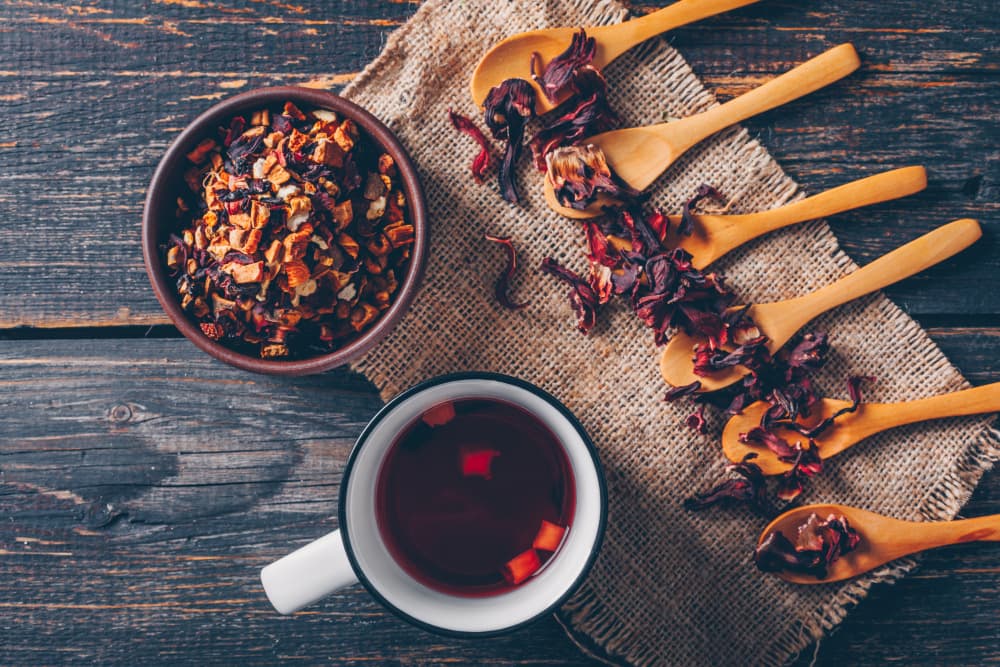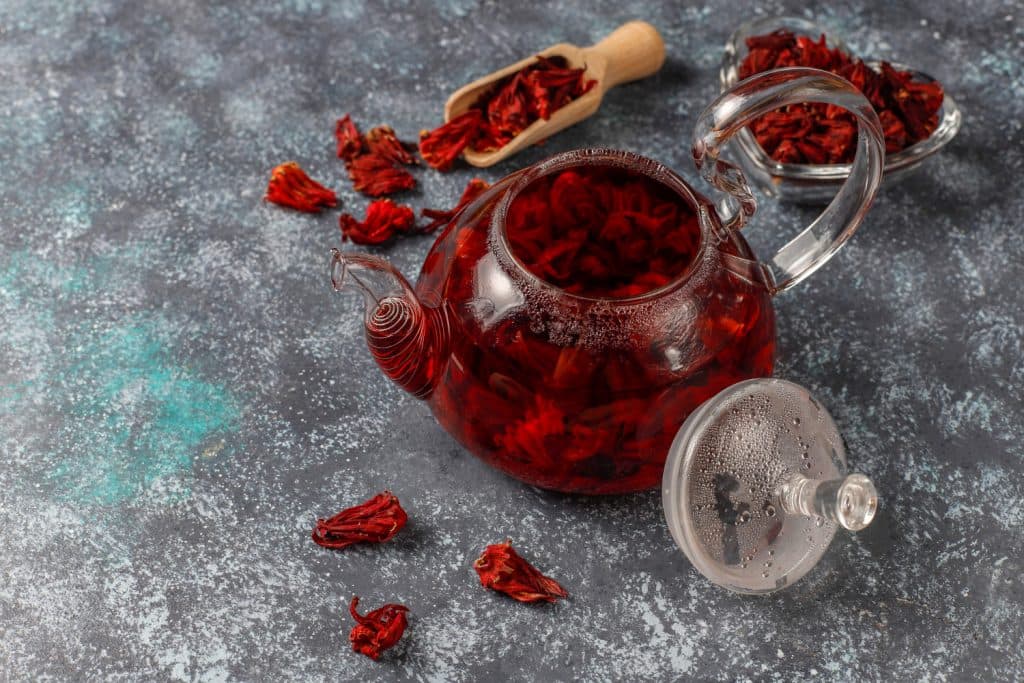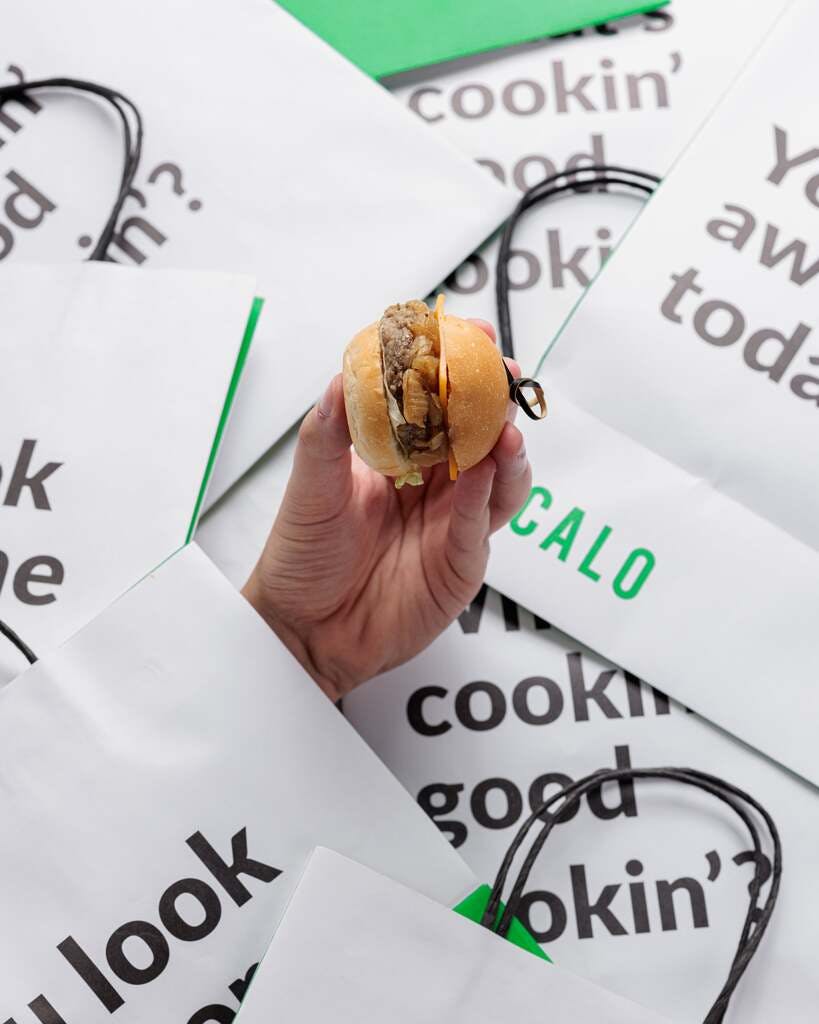Back to blog
Hibiscus Tea for Blood Pressure: Natural, Safe, and Effective

Hibiscus tea is one of nature’s healthiest drinks, also known as Karkade tea in the Middle East and North Africa. It’s packed with potential health benefits. It can regulate blood pressure, support heart and liver health, promote weight loss, and slow the growth of harmful bacteria and cancer cells. In this article, we’ll uncover the benefits and downsides of hibiscus on the body, so that you can decide whether it deserves a place in your daily routine.
Hibiscus Tea Benefits
Hibiscus tea is a caffeine-free herbal tea made from the dried hibiscus flower petals. Known for centuries through trade and traditional herbal medicine for its tart flavor, vibrant color, and powerful effects on the heart, gut health, and more. Here are some of its proven benefits:
Lowers Blood Pressure
Hibiscus and blood pressure go hand in hand, its tea is a safe and natural option for those with high blood pressure. Studies found that both hot and cold hibiscus tea can naturally lower systolic and diastolic blood pressure, reducing the risk of heart disease and strokes.
It also acts as a natural diuretic, making you urinate more often, so as to help flush out toxins and shed excess fluid, which can ease water retention, reduce high blood pressure, and support liver function in detoxifying the body.
Read more about Kombucha Tea here.
Supports Liver Health
Hibiscus extract can be a gentle ally for your liver. It efficiently supports liver function, improves detoxification, and protects against fatty liver damage, naturally keeping your liver in better shape.
Hibiscus tea supports a healthy gut microbiome thanks to its rich antioxidant content, which helps protect the intestinal lining from oxidative damage and limits the growth of harmful bacteria.
Read more about liver detox here.
Rich in Antioxidants and Vitamin C
Packed with vitamin C, hibiscus strengthens your immune system and protects your body from infections. Its polyphenols fight free radicals, helping to prevent cancer and age-related diseases such as Alzheimer’s.
Antioxidants also support the balance of beneficial bacteria in the gut, which is essential for digestion and nutrient absorption.
Read more about breast cancer here.
Lowers Cholesterol
Hibiscus tea may help improve blood fat levels by increasing (HDL) good cholesterol and reducing (LDL) bad cholesterol and triglycerides, supporting heart and artery health, particularly in people with diabetes or metabolic syndrome.
Fights Inflammation and Bacteria
Due to its antibacterial and anti-inflammatory properties, hibiscus can inhibit the growth of several bacterial strains, helping protect your body and even your skin from various infections, as well as supporting your body’s defenses against bacterial infections.
Promotes Weight Loss and Blood Sugar Control
Hibiscus tea may help reduce body fat, lose body weight, and boost metabolism, improving body mass index (BMI), especially in people with obesity. It gives an added value to a balanced diet and exercise routine. It also helps manage blood sugar levels in those with type 2 diabetes.
Read more about the benefits of green tea here.
Hibiscus Benefits for Skin

Hibiscus helps keep your skin youthful and glowing. Some of its key skin benefits include:
- Fights signs of ageing: Stimulates collagen production and reduces wrinkles.
- Evens out skin tone: Helps fade dark spots and brightens skin complexion.
- Purifies the skin: Removes impurities and promotes a clear, fresh look.
- Soothes sensitive skin: Reduces redness and irritation while calming the skin.
Read more about collagen benefits here.
How to Use Hibiscus for Skin
To make a simple DIY face mask at home, all you need to do is:
- Mix hibiscus powder with rose water.
- Apply for 15 minutes.
- Rinse with lukewarm water.
Read more about natural skincare remedies here.
Hibiscus Benefits for Hair
From thickening hair to deep hydration, hibiscus leaves work wonders. It is believed that its leaves can be used to prevent premature greying of hair. Here’s how you can use it:
Hair Thickening Mask
Apply for 30 minutes, then rinse. Mix:
- Hibiscus petal powder
- Yoghurt
- Honey
- Aloe vera gel
- Coconut milk
Hydrating Hair Mask
Apply 1 hour before washing. Mix:
- Hibiscus flowers
- Henna leaves
- Juice of half a lemon
Read more about aloe vera gel here.
Hibiscus Tea Side Effects

Like any herbal drink, hibiscus can cause side effects if consumed in excess. While it offers many benefits, overuse may lead to:
- Low blood pressure
- Low blood sugar levels
- Interaction with diabetes or blood-thinning medications
- Increased risk of miscarriage or early labour
- Digestive issues or allergic reactions (stomach pain, nausea, rash)
- In rare cases, it may affect liver or kidney function
Who Should Be Extra Cautious?
- Diabetics: Hibiscus may lower blood sugar.
- Before Surgery: Stop using hibiscus at least two weeks before surgery to avoid unstable blood sugar levels.
- Hypertensive Individuals: It may further reduce blood pressure in those already prone to hypotension.
- Pregnant Women: It may cause uterine contractions and potential miscarriage. Consult your doctor before consuming it.
Hibiscus and Men’s Reproductive Health
Some animal studies suggest that hibiscus might reduce prostate size and affect sperm quality, which can potentially influence fertility. More research is needed, but interestingly, hibiscus has also been considered as a potential natural male contraceptive.
Read more about protein powder here.
Healthy Meal Delivery
Enjoy nutritious and delicious meals every day with the Calo app! Keep your lifestyle balanced with healthy dishes for you and your family, all delivered straight to your doorstep. Try it today and experience wellness and lasting health with ease.
FAQs
How to make Hibiscus Tea?
Add the dried hibiscus petals to boiled water, and steep for 5–15 minutes. Strain, enjoy warm or allow it to cool, then pour over ice for a refreshing drink. You can add honey as a natural sweetener, or a slice of lemon to balance the tart flavor.
Does hibiscus lower blood pressure only when served cold?
Not necessarily. Whether it’s served hot or cold, hibiscus tea helps reduce high blood pressure due to compounds like anthocyanins, which promote relaxation of blood vessels. However, cold-brewed hibiscus may preserve these compounds better since heat can slightly break them down. Both are beneficial, as long as you skip the added sugar.
Does hibiscus increase female hormones?
Hibiscus contains plant-based oestrogen (phytoestrogen), which stabilizes hormones and helps ease PMS and menopause symptoms such as hot flashes.
Is it safe to consume hibiscus tea during pregnancy or breastfeeding?
It’s best avoided during pregnancy, especially in the first trimester, as it may trigger uterine contractions and menstrual-like bleeding, leading to miscarriage. Its safety during breastfeeding is still uncertain, so always consult your doctor before drinking hibiscus tea.
Sipping hibiscus tea regularly can have countless benefits, whether hot or cold, it’s a refreshing, natural, and healthy drink. Just remember that moderation is key. If you’re pregnant, have low blood pressure, or take certain medications, consult your doctor first. Read more about Tart Cherry Juice and learn about the benefits of Kefir and many more health-related topics on the Calo Blog.








